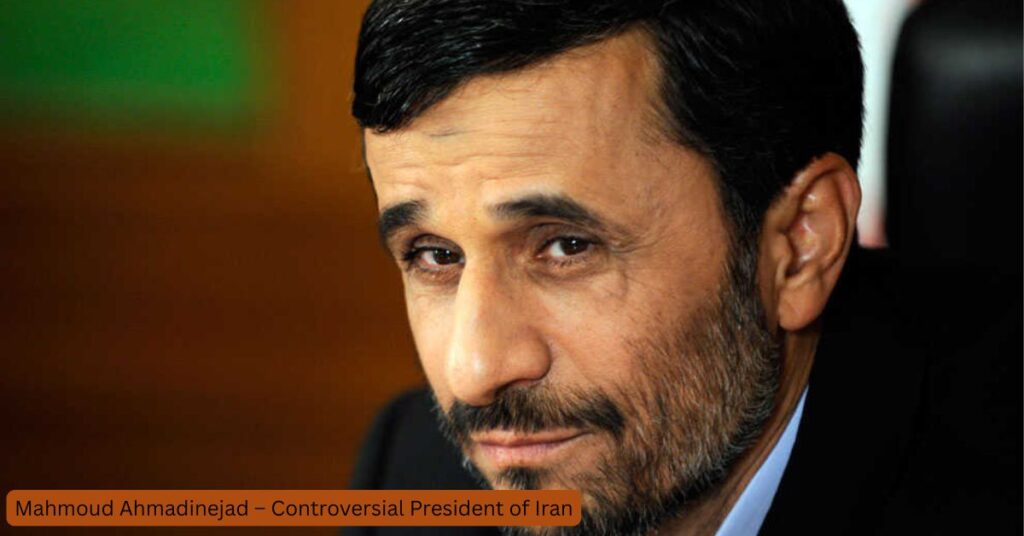Mahmoud Ahmadinejad, the sixth President of Iran, remains one of the most polarizing figures in modern Iranian politics. Serving from 2005 to 2013, his presidency was marked by populist policies, fiery rhetoric, and international controversies that reshaped Iran’s global image. While some viewed him as a champion of the poor and a voice of defiance against Western powers, others criticized his governance for authoritarian tendencies, economic mismanagement, and strained foreign relations.
Early Life and Rise to Power
Born on October 28, 1956, in Garmsar, Iran, Ahmadinejad came from a modest family background. He pursued higher education at Iran University of Science and Technology, earning a degree in civil engineering before obtaining a Ph.D. in transportation engineering. His career began in academia, but he soon transitioned into politics after the 1979 Islamic Revolution.
Ahmadinejad gained recognition within Iran’s conservative political circles, eventually becoming the mayor of Tehran in 2003. As mayor, he promoted conservative Islamic values, emphasizing modesty, social justice, and anti-corruption measures. His populist style and grassroots appeal paved the way for his presidential victory in 2005.
Presidency and Domestic Policies
Ahmadinejad’s presidency focused heavily on social justice and economic redistribution. He introduced subsidies for fuel, food, and housing to support low-income Iranians. These initiatives won him support among rural and working-class communities but strained the national economy, particularly as oil revenues fluctuated.
His government also pushed for nuclear development, arguing that Iran had the right to peaceful nuclear energy. Domestically, he sought to strengthen the role of religion in public life and often clashed with reformist movements, journalists, and opposition leaders.
International Relations and Global Controversy
Ahmadinejad’s foreign policy stance attracted global attention. He adopted a confrontational tone toward the United States, Israel, and European powers, often using provocative language in international forums. His denial of the Holocaust and statements against Israel drew widespread condemnation.
At the same time, Ahmadinejad emphasized Iran’s independence from Western influence, presenting himself as a defender of sovereignty for developing nations. His administration deepened ties with countries such as Venezuela, Russia, and China, while relations with Western nations deteriorated significantly.
The 2009 Election and Protests
The most controversial moment of Ahmadinejad’s presidency came with the 2009 presidential election. His disputed re-election, which opponents claimed was rigged, sparked mass protests known as the Green Movement. Demonstrators demanded electoral transparency and democratic reforms, but the government responded with a heavy crackdown, leading to arrests, violence, and widespread criticism from human rights organizations.
Later Years and Legacy
After leaving office in 2013, Ahmadinejad remained a vocal figure in Iranian politics. He attempted to run for president again in 2017 but was disqualified by the Guardian Council. Despite his political setbacks, he continues to influence public debate with his outspoken views.
Ahmadinejad’s legacy is complex. Supporters credit him with empowering the poor, resisting foreign pressure, and championing national pride. Critics, however, highlight his confrontational style, human rights violations, and economic challenges that worsened under his rule.
Conclusion
Mahmoud Ahmadinejad’s presidency stands as one of the most controversial chapters in Iran’s history. His populist approach, defiance against the West, and disputed electoral victory left lasting impacts on both Iran’s domestic politics and international relations. Whether seen as a defender of the marginalized or a divisive leader, Ahmadinejad remains a figure that continues to spark debate in discussions about Iran’s political trajectory.




